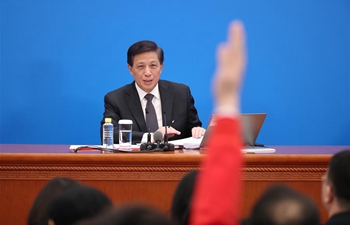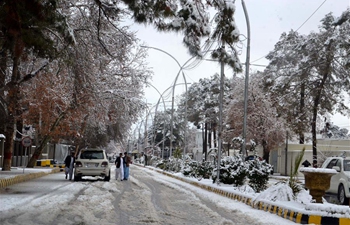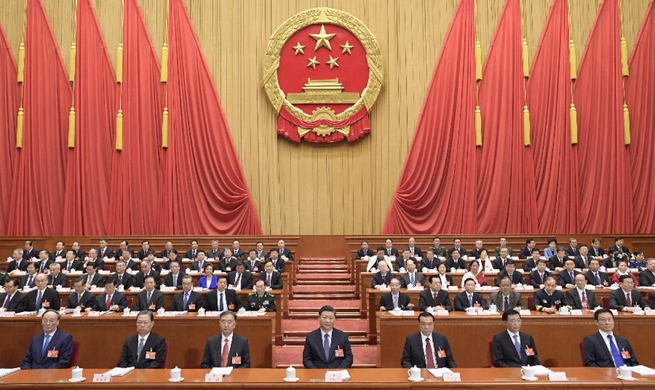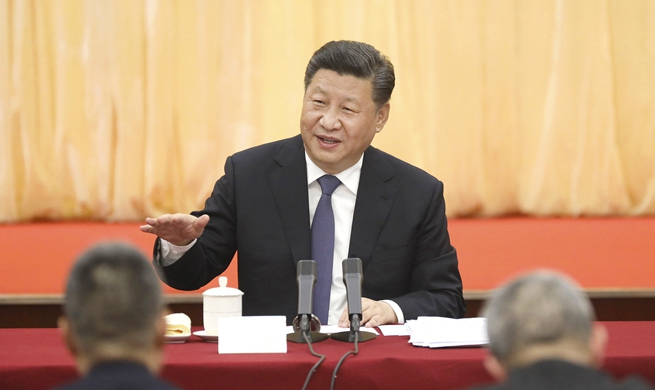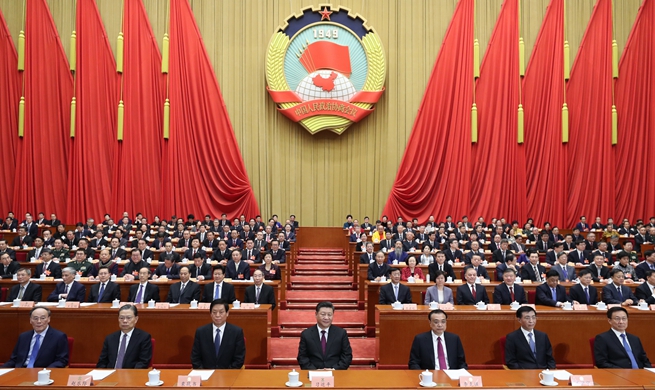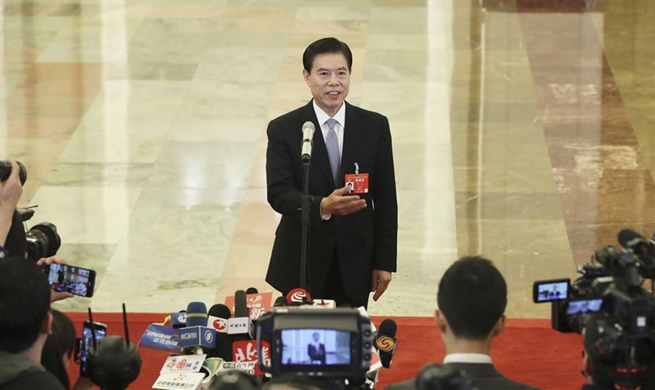RAMALLAH, March 5 (Xinhua) -- Palestinians are holding their breath as Israel's general elections are due to take place on April 9, amid fears of further regional escalation to serve the electoral aspirants.
Observers believe that the Palestinian issue is the most tackled on the campaign trail of Israeli parties, including more hostile steps to gain public support ahead of the upcoming elections.
For weeks, the Palestinian territories have been experiencing more tension with Israel in the light of what Palestinian officials describe as deliberate actions in the framework of Israeli election campaigns.
Israel recently said its security cabinet decided to withhold 138 million U.S. dollars in tax transfers to the Palestinian Authority citing its payments to prisoners jailed for attacks on Israelis.
At the same time, the eastern part of the city of Jerusalem, especially the Al-Aqsa Mosque, is witnessing almost daily tension, in addition to new plans of Jewish settlements in the West Bank.
The Israeli army also declared its readiness for a possible military operation in the Gaza Strip a few days ago, followed by a sudden training of troops stationed near the Gaza Strip.
For the Israeli parliamentary elections, right-wing factions are expected to prevail while the left-wing parties are trying to maintain a foothold in the political map.
According to Naji Shurrab, a professor of political science at Al-Azhar University in Gaza, the upcoming elections in Israel will take place for the first time under unexpected changes and alliances in political contexts that work for the right-wing camp.
He said, however, indicators point to the formation of a right-wing radical government, ruling out that the left-wing groups could achieve significant breakthroughs in the upcoming elections.
But the popularity of Israeli Prime Minister Benjamin Netanyahu has recently gone down in opinion polls after he was accused of corruption, Shurrab added.
The professor believes that Netanyahu is expected to present something concrete to lift his popularity ahead of the upcoming elections, such as further escalation in the West Bank and Jerusalem or a new war on the Gaza Strip, to help him win the election again.
Meanwhile, Georges Juqman, head of the Institute for Democratic Studies in Ramallah, also said the Palestinian issue is strongly present in the Israeli elections, adding that Israeli parties are using it in their election bids.
"Public opinion in Israel has been going to the right for several years ... Politicians are racing to win electoral support. The more extremist they become, the more victims there will be among the Palestinians," he warned.
He believes that the chances of an Israeli military escalation in the Gaza Strip appear to be slim as the military leaders oppose this option.
The impasse in the Palestinian cause is expected to remain, noting that postponing the announcement of the U.S. deal of the century until after the Israeli elections proves that the situation will not change, Juqman explained.
Palestinian President Mahmoud Abbas expressed hope in February that the Israeli parliamentary elections scheduled in April would bring a new leadership that believes in peacemaking.
"The Palestinian hands will be extended to the elected Israeli leadership to achieve peace in the region," Abbas said. "I believe in peace more than before and I don't want a war."
The Israeli-Palestinian peace talks have been stalled since 2014, after nine months of U.S.-sponsored talks failed to make progress to resolve the decades-long conflict.
Hani al-Masri, director of the Ramallah-based Masarat Center for Research and Studies, said the Israeli elections are witnessing a fierce competition between the extreme right and the right wings, adding that both streams are hostile to the Palestinians.
"There are many Israeli plans in which the parties of the far right and the new right meet on points such as opposing the establishment of a Palestinian state and separating the West Bank from the Gaza Strip," al-Masri said.
There is a consensus among these parties to maintain a full Israeli security control over the Palestinian territories after reaching a final solution to the conflict, he added.
The competition in Israel is based on "ending the remaining political role of the Palestinian Authority so as to undermine the Palestinian rights and continuing to bury the choice of the Palestinian state in favor of the establishment of the State of Israel," Al-Masri concluded.





